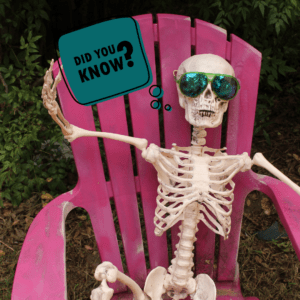Upper crossed syndrome (UCS) happens when the muscles in the neck, shoulder, and chest become unbalanced ⚖️. This means some muscles are too weak and some are too tight. Usually, these muscles become unbalanced due to poor posture, bending, twisting, and repetitive motion. 😳
What Does Upper Crossed Syndrome Look Like?
Believe it or not, UCS is visible. Typically, if a person has UCS, they’ll either have an inward curving spine in their neck, shoulders that are rounded forward, protruding shoulder blades, or their neck will slouch forward.
How Is Upper Crossed Syndrome Treated?
If you’ve noticed one of the above signs and you think you may have UCS, it’s essential that you get treated for it. One of the most powerful ways of treating UCS is to go for chiropractic care 🙌.
Chiropractic care helps your muscles become more balanced and aligned. It also helps us move our muscles more easily.
Chiropractic adjustments ensure our tighter muscles are relaxed and makes sure our weaker muscles are strengthened. We can also give lifestyle advice to help minimise time spent in this posture. 😊
How Can Upper Crossed Syndrome Be Prevented?
The good news 🥳️ is that there are plenty of things you can do to prevent getting upper crossed syndrome so that you don’t require treatment. Some simple ways to avoid UCS include:
- Wearing supportive shoes.
- Looking at screens at eye level rather than looking down at them.
- Making sure your desk and chair are at the right height to ensure your posture is right. You can find tips on this herein our newsletter on seating postions to reduce pain whilst working
- If you are sedentary throughout the day, making sure to take regular breaks where you move and stretch.
- Making sure you’re sleeping on the right mattress and pillows for you.
- Getting as much physical activity into your day as possible.
If you’re experiencing UCS, we’d love to help!
Why not speak to one of our team the next time you are in, and we can start helping you make changes! 😊





